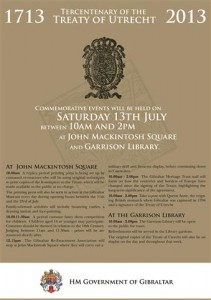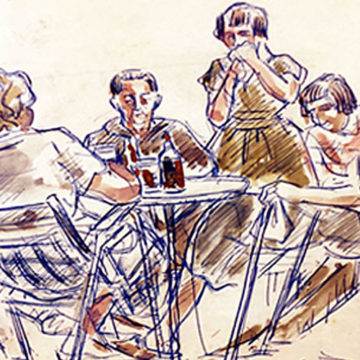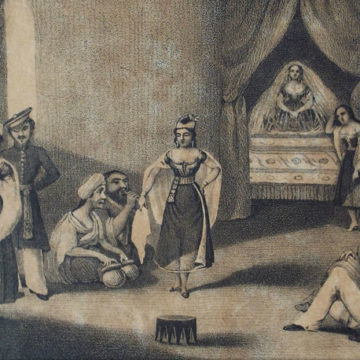Thursday 10th October – Friday 11th October 2013
The Tercentenary of the Treaty of Utrecht in March and April this year will certainly strike a chord given the ever present reality of Article X as it relates to the status of Gibraltar not only as a British protected territory and also as an integral part of Europe.
It is difficult to ignore the reality of this 1713 treaty given that it remains central to questions regarding the self determination of the Gibraltarians but the aim of this symposium is to engage with the Treaty as one that dealt with the redrawing of borders across territories and with the balance of power in Europe. The Treaty, signed between England and Spain, refers to a ‘perpetual and never-ceasing hope [that] the needle of the balance may remain invariable’. (10) This balance is also referred to as a ‘Federal Equilibrium’, with the suggestion that this is a Treaty that envisaged Europe as a nascent federal state. Indeed, Article VIII emphasises the importance of ‘free navigation and commerce between the subjects of each kingdom as it was heretofore in times of peace.
As such, our approach is to view the Treaty of Utrecht as a tool or document that, if on the one hand, brokered peace in Europe, it also, on the other, sought to configure Europe as a federal state – as a European Union of sorts.
For this reason, we thought we could look at the wider contexts of the Treaty to evaluate not only how this document continues to determine Gibraltar but to also understand the historical contexts of this European settlement across time and space, across Europe and throughout these three hundred years. The following are headings that will help us to open our understanding of the Treaty of Utrecht.
- Borders – the redrawing of borders in Europe and how this issue of borders resonates to the present day.
- The wider implications for other European territories
- The wider implications for Gibraltar
- Commercial Transactions
- Geopolitical Discourse
- The Legal Position
- Social History – the tercentenary of Utrecht offers us the opportunity to look back at a Gibraltar and Europe of that era. To see how people lived
- Contemporary European History and History of the Mediterranean – the zone in general and not just Gibraltar
Programme of Events
Thursday 10th October 2013
Morning Session
9.30 Opening by the Minister for Culture and Heritage the Hon. Steven Linares
10.00 Keynote Speaker, Professor John B. Hattendorf, Ernest J. King Professor of Maritime History, Chairman, Maritime History Department, and Director, Naval War College Museum.
‘The Peace of Utrecht in World History’
10.45 Q&A
11.00 – 11.15 Coffee Break
11.15 Professor Renger de Bruin, Curator for Urban History at the Centraal Museum Utrecht
‘Exhibiting the Peace: The Treaty of Utrecht in Four European Museums’
12.00 Marti Crespo, Catalan Journalist and Historian
‘Treaty of Utrecht and The Gibraltar-Minorca connection(s)’
12.45 Q&A
1.15 BREAK FOR LUNCH
Afternoon Session
2.30 Professor Jesús Verdú Baeza, Director, Faculty of Law, Algeciras Campus, University of Cádiz
‘El Tratado de Utrecht: Vigencia e Interpretación del Artículo X’
3.15 Professor Kees Roelofsen, University of Utrecht
‘Gibraltar 1713-2013: Creating a ‘Unit of Self-Determination’
4.00 – 4.15 COFFEE BREAK
4.15 Michael Llamas QC, Chief Legal Advisor to HM Government of Gibraltar
‘Gibraltar from the Treaty of Utrecht 1713 to the Treaty of Rome 1957’
5.00 Q&A
Friday 11th October 2013
Morning Session
9.30 Keynote Speaker Sir Graham Watson MEP, Liberal Democrat Member of the European Parliament for South West England and Gibraltar
‘Gibraltar and Europe’
10.15 Q&A
10.30 COFFEE BREAK
11.30 Levi Attias, Barrister, Attias & Levy
‘The Jews of Gibraltar, the Treaty of Utrecht, the Arrogance of Racism’
12.15 Q&A
1.00 BREAK FOR LUNCH
Afternoon Session
2.30 Dr. Jennifer Ballantine Perera, Director, Gibraltar Garrison Library
‘The Politics of Space, the Ambivalence of Authority and the Civilian Population in Gibraltar between 1704 and 1713’
3.15 Dr. Concha Langa, Faculty of Contemporary History, University of Seville
‘La prensa gibraltareña y la frontera con España’
4.00pm – 4.20pm Q&A
4.20 – 4.35 COFFEE BREAK
4.35 Closing Lecture Professor Stephen Constantine, University of Lancaster
‘Populating Gibraltar: The Will of the People and the Letter of the Law’
5.15 Q&A



